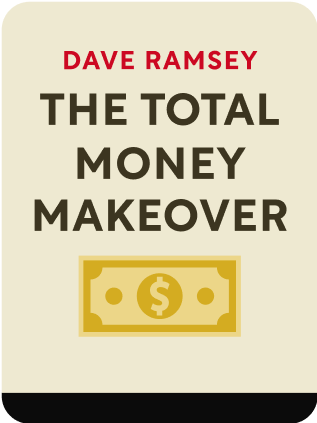

This article is an excerpt from the Shortform book guide to "The Total Money Makeover" by Dave Ramsey. Shortform has the world's best summaries and analyses of books you should be reading.
Like this article? Sign up for a free trial here .
What is Dave Ramsey’s mortgage advice? How does Dave Ramsey say mortgage debt should be approached and how to pay off your mortgage?
According to Dave Ramsey, mortgage debt should be limited. It is possible to pay cash for a home or limit your debt.
Read on for more about Dave Ramsey, mortgage options, and buying a home.
Dave Ramsey: Mortgage Options and How to Pay Off Mortgage Early
The biggest myth about home-buying is that you need a mortgage in the first place—that it’s the only way to pay for a home. According to Dave Ramsey, mortgage debt is unnecessary.
There’s another way: paying 100% down and you don’t have to worry about how to pay off your mortgage. Paying cash for a home is possible if you save enough, long enough. For instance, a couple in the Total Money Makeover program paid cash for a $150,000 home. With a household income of $80,000 a year, they did it by living on $30,000 and saving $50,000 a year for three years. According to Dave Ramsey, mortgage debt can be avoided by saving aggressively.
That said, if you choose to take out a mortgage, follow these two rules if you want to know how to pay off your mortgage:
- Stick with a 15-year, fixed-term mortgage (not 30 years, which keeps you in debt too long and costs you too much in interest).
- Don’t commit to payments that exceed 25% of your monthly take-home pay.
This is the only kind of debt acceptable in the Total Money Makeover, but you should pay it off early as part of the program. For Dave Ramsey, mortgage payments should be accelerated as much as possible.
How to Pay Off Mortgage Early? Avoid These Deals
More people would be able to pay off their mortgages if they hadn’t locked themselves into bad deals. According to Dave Ramsey, mortgage deals should be treated with suspicion. Here are the typical mistakes people make:
1) Taking out a 30-year mortgage and promising yourself you’ll pay it off within 15 years. You just want to give yourself a cushion in case something comes up.
The truth is, things always come up—there’s always an extra bill to pay that keeps you from making the extra mortgage payment. Few people, unless they’re completing a Total Money Makeover, systematically pay extra on their mortgage. You’re unlikely to be the exception. How to pay off a mortgage early? A 15-year mortgage.
A 15-year mortgage saves you a ton of money on interest, plus it saves 15 years of being in debt with a 30-year mortgage. For example, at 7% interest (typical at the time this book was written), you’d pay almost $150,000 less in interest with a 15-year mortgage, compared to 30 years, on a $250,000 house with a $25,000 down payment.
If you have a good interest rate, there’s no need to refinance a mortgage to pay it off earlier. You can still pay it off in 12 years, for example, by paying extra each month; use this tool to calculate how much to pay.
Don’t refinance unless you can save substantially on interest. If you’re considering refinancing, ask for a “par” quote (without points or an origination fee).
2) Saving on interest with an ARM (adjustable-rate mortgage) or balloon mortgage when you think you’ll be moving in a few years.
While you’ll have lower monthly payments and save on interest initially, these types of loans put you at high risk of foreclosure. Under an ARM, your interest rate goes up after a fixed period when market rates increase. Similarly, with a balloon mortgage, after an initial period of low payments, you have to pay off the entire balance at once.
These loans are risky because if your circumstances change, you won’t be able to make the balloon payment.
3) Maintaining a home equity loan/line of credit as an emergency fund.
Many banks aggressively push their Home Equity Line of Credit or HELOC, a renewable loan against the equity in your home. People often go this route—putting their home at risk—when they’re overextended on other kinds of debt. HELOCs are used for almost anything, including vacations, starting a business, consolidating debt, or as an emergency fund.
A large number of HELOCs end in foreclosure. When you’re in financial trouble, the worst thing you can do is borrow against your home, because you’re likely to lose it.
Of course, you won’t have any of these problems if you save and pay cash for a home, or attack and pay off a 15-year, fixed-term mortgage with gazelle intensity.

———End of Preview———
Like what you just read? Read the rest of the world's best book summary and analysis of Dave Ramsey's "The Total Money Makeover" at Shortform .
Here's what you'll find in our full The Total Money Makeover summary :
- The 7 steps to achieving financial stability (you'll love #7)
- A fool-proof plan for becoming debt-free
- How myths about debt and money are crippling your financial health






